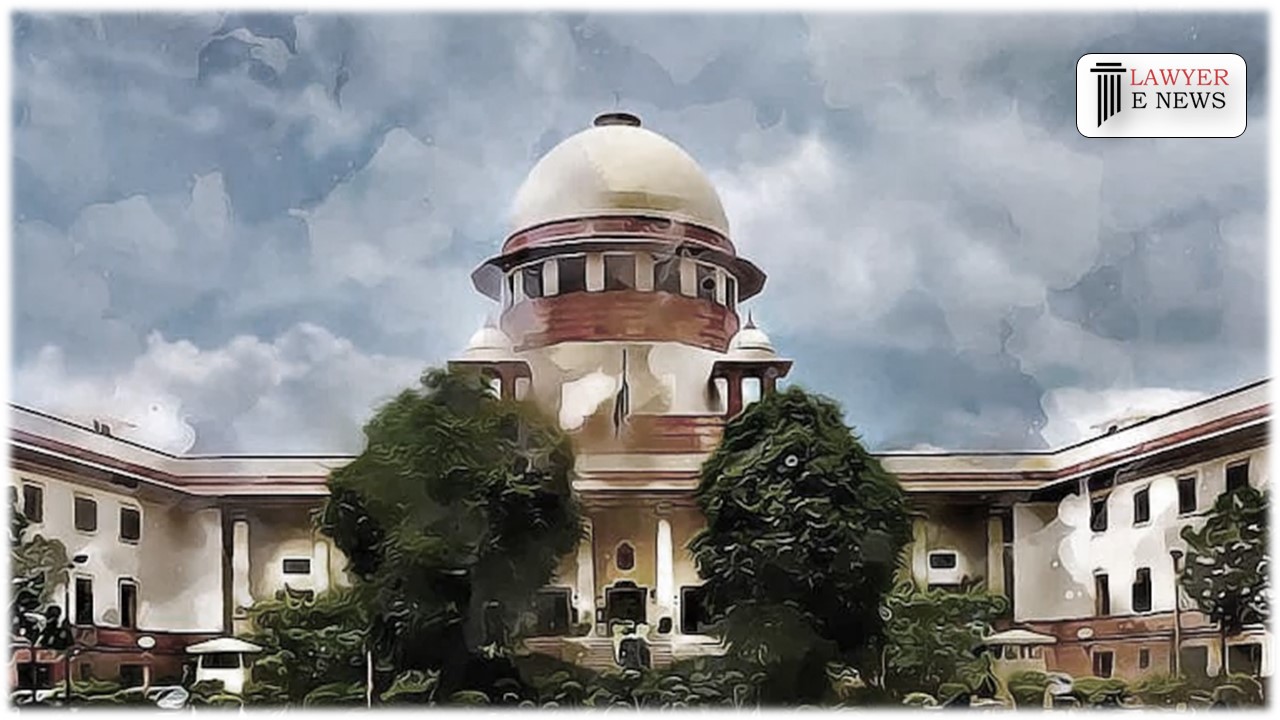-
by sayum
14 February 2026 2:22 PM



"Court's Inherent Powers Can Rectify Admission Errors," Rules Supreme Court
In a pivotal ruling, the Supreme Court has clarified the legal position on the admissibility of insufficiently stamped documents in civil proceedings. The judgment, delivered by a bench comprising Justices Dipankar Datta and Pankaj Mithal, underscores the inherent powers of the court to rectify errors in the admission of evidence, emphasizing judicial responsibility in ensuring compliance with stamp duty laws.
The case revolved around conflicting sale deeds and the admissibility of a General Power of Attorney (GPA) executed on insufficiently stamped paper. The appellant, G.M. Shahul Hameed, contested the High Court of Karnataka's decision to set aside an order by the Trial Court which had directed the respondent, Jayanthi R. Hegde, to pay the deficit stamp duty and penalty on the GPA. The GPA, crucial to the respondent's case, was initially admitted into evidence without objections due to the absence of the appellant’s senior counsel.
The Supreme Court emphasized that the judicial process must include a thorough examination of documents for compliance with statutory requirements, such as adequate stamping. "The presiding officer of a court, authorized in law to receive an instrument in evidence, is bound to give effect to the mandate of sections 33 and 34 of the Karnataka Stamp Act, 1957," the bench noted, reinforcing the duty of courts to ensure proper stamping before admitting documents into evidence.
The Court elucidated that the inherent powers under Section 151 of the Code of Civil Procedure (CPC) can be invoked to rectify the admission of insufficiently stamped documents. This ensures justice and prevents abuse of the judicial process. The Court stated, "The Trial Court did have the authority to revisit and recall the process of admission and marking of the instrument in exercise of its inherent power saved by section 151 thereof, and that the other remedy made available by the 1957 Act was not required to be pursued by the appellant to fasten the respondent with the liability to pay the deficit duty and penalty".
The judgment delves into the statutory framework of the Karnataka Stamp Act, 1957, particularly Sections 33, 34, 35, and 58, which govern the examination, impounding, and admissibility of insufficiently stamped documents. The Court underscored that once a document is admitted into evidence without judicial scrutiny, the admissibility cannot be questioned, barring procedural rectifications under Section 58. However, if the initial admission lacked judicial determination, Section 35 does not preclude the court from rectifying the error.
The bench referred to landmark decisions, including Javer Chand v. Pukhraj Surana and Ram Rattan v. Bajrang Lal, to elucidate the necessity of judicial determination before marking documents as exhibits. These cases reinforced the principle that admission without judicial scrutiny does not invoke the finality envisaged under Section 35 of the Stamp Act.
Justice Dipankar Datta remarked, "The circumstances under which the document was marked without application of judicial mind coupled with the absence of the counsel for the appellant before it when the GPA was admitted in evidence and marked exhibit, justify the exercise of inherent power to rectify the error".
The Supreme Court's decision reinstates the order of the Trial Court, mandating the respondent to pay the deficit stamp duty and penalty. This ruling emphasizes the judiciary's role in safeguarding fiscal interests and ensuring adherence to statutory mandates on stamp duty. By reaffirming the court’s inherent powers to rectify procedural lapses, this judgment sets a precedent for meticulous judicial scrutiny in the admission of documentary evidence, thereby upholding the integrity of the legal process.
Date of Decision: July 9, 2024
G.M. Shahul Hameed vs. Jayanthi R. Hegde
